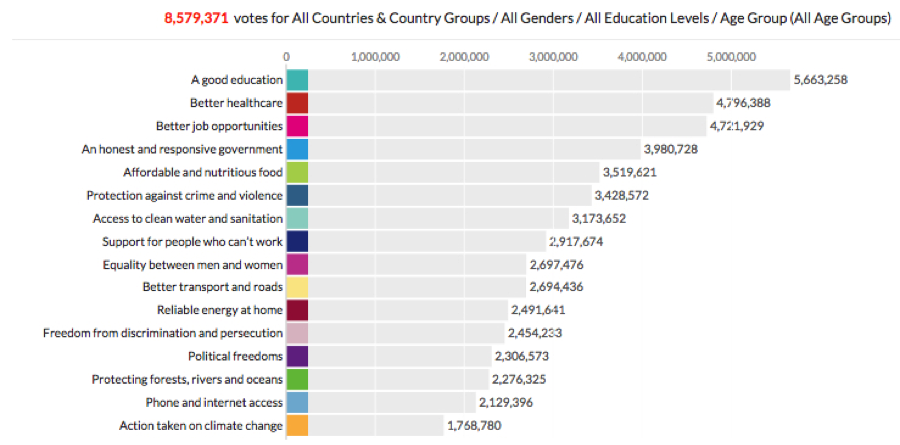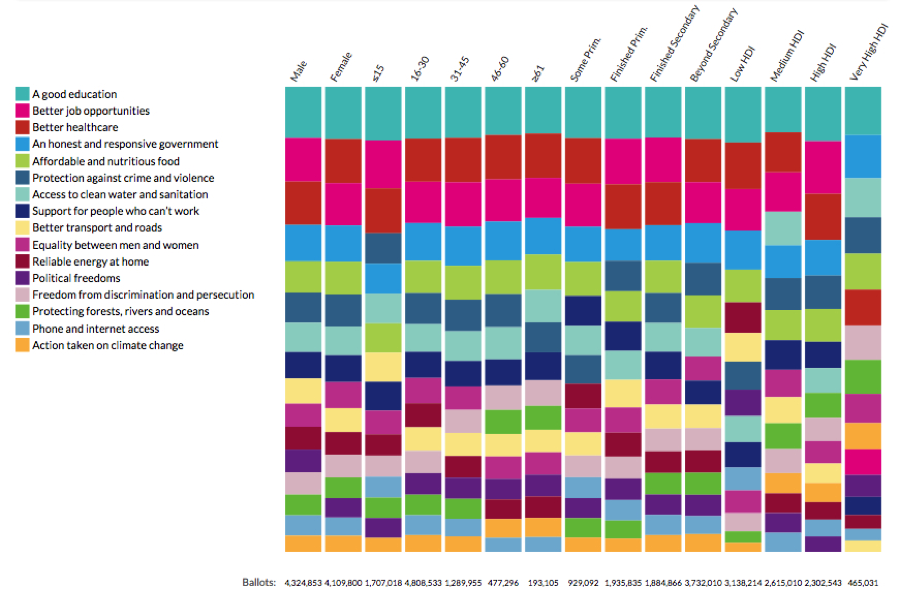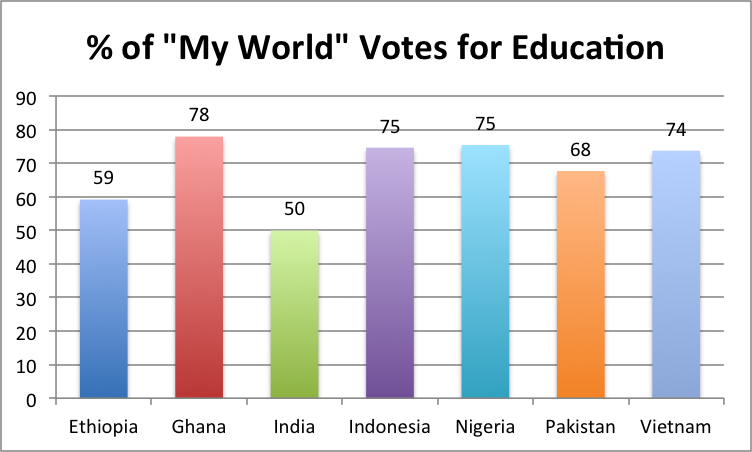Mari Oye
Research Assistant
Blog
In the UN’s Sustainable Development Goal straw poll the votes are in – and “good education” is the hands-down winner.

Voting by paper ballot, website, and SMS, more than 8.5 million people chose six issues out of sixteen which “matter most… for you and your family.” The stated point of this “My World” exercise was to shape the successors to the Millennium Development Goals, with the UN calling voters’ voices “crucial inputs to the new development agenda.”
Of course there are lots of potential problems with the survey set-up, from the haphazard selection of voters[1] to the idea that people should have to choose between such items as “food” and “protection from violence” at all.
But leaving these questions aside for the moment and taking the poll at face value, the “My World” survey does yield an answer. Any way you break it down, education won: regardless of voter gender, schooling level, age, and country human development index. In nearly every country “good education” was first or second.

Out of all those who voted, 2/3 listed education as among their top six priorities. Healthcare (56%) and jobs (55%) came next, with no other choice selected by more than half the voters. More than 5.7 million people from low- and medium-HDI (human development index) countries voted, including nearly a million in India and more than a million in Nigeria. In low-HDI countries, 71% of voters picked education in their top six.
In the Afrobarometer 2014/15 results, with a more rigorous approach to representative sampling, education was the most common choice as the “top priority for additional investment” for 33% of respondents (with 22% listing it as the second priority).[2]
The RISE programme will focus education systems research on Ethiopia, Ghana, India, Indonesia, Nigeria, Pakistan and Vietnam. Education ranked first in the My World survey in all of these countries except India, where it came a close second (50%) to jobs (51%).

However imperfect a lens of preference “My World” may be, it was created to feed into the SDGs, and it yielded a clear consensus choice. And education—notably not just schooling but “good education”—did make it into the SDGs. Goal 4.1 states: “By 2030, ensure that all girls and boys complete free, equitable and quality primary and secondary education leading to relevant and effective learning outcomes.”
Of course, everything but the kitchen sink made it into the SDGs, creating a morass of competing priorities to sort through. But if one goes by the voting meant to shape these priorities, “a good education” would be a good place to start.
The question now is how to get the "good" in “good education” that people want—how to achieve the "relevant and effective” learning outcomes SDG 4.1 aspires to. Given the current low levels of learning and weaknesses in education systems, this will require moving beyond “more of the same” approaches to tackle the big problems with existing systems of education.
[1] Participating partner organizations ranged from the Iranian Cheetah Society to the Uppsala University Library.
[2] Although, unsurprisingly, it does depend on how the question is posed; asked to name the “most important problem” in their countries, Afrobarometer respondents picked unemployment, followed by health and then education.
RISE blog posts and podcasts reflect the views of the authors and do not necessarily represent the views of the organisation or our funders.